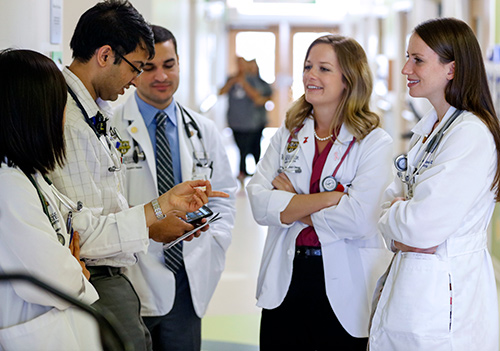Medical elective rotations offer invaluable opportunities for medical students to gain hands-on clinical experience, explore different specialties, and expand their medical knowledge and skills. The United States, with its world-renowned healthcare system and diverse range of medical facilities, is a popular destination for medical students seeking elective rotations. In this comprehensive guide, we will delve into the benefits of medical elective rotations, explore the various specialties available, discuss the application process, and provide tips for making the most of this enriching experience.
The Importance of Medical Elective Rotations
Medical elective rotations provide students with a unique opportunity to:
- Gain exposure to different medical specialties, procedures, and patient populations.
- Develop clinical skills, including history-taking, physical examination, and diagnostic reasoning.
- Build professional networks and connections with healthcare professionals and mentors.
- Explore potential career paths and specialties before committing to residency training.
Popular Specialties for Elective Rotations
In the United States, medical students can choose from a wide range of specialties for their elective rotations. Some popular specialties include:

- Internal Medicine: Provides exposure to the diagnosis and management of adult medical conditions in both outpatient and inpatient settings.
- Surgery: Offers hands-on experience in various surgical specialties, including general surgery, orthopedic surgery, neurosurgery, and more.
- Pediatrics: Focuses on the care of infants, children, and adolescents, covering a wide range of medical conditions and preventive care.
- Obstetrics and Gynecology: Involves rotations in labor and delivery, gynecologic surgery, prenatal care, and reproductive health.
- Emergency Medicine: Provides experience in the evaluation and management of acute medical and traumatic emergencies in the emergency department.
- Psychiatry: Offers exposure to the diagnosis and treatment of mental health disorders, including inpatient and outpatient psychiatric care.
The Application Process
The process for securing elective rotations in the USA typically involves the following steps:
- Research: Identify medical schools and hospitals offering elective rotations in your desired specialty and location.
- Contact Programs: Reach out to program coordinators or elective rotation coordinators to inquire about available rotations, application requirements, and deadlines.
- Submit Applications: Complete and submit application materials, which may include a CV, personal statement, letters of recommendation, and immunization records.
- Secure Visa (if applicable): International medical students may need to obtain a visa to participate in elective rotations in the USA. Ensure that you have the necessary documentation and permissions before starting your rotation.
Tips for Making the Most of Your Elective Rotations
To maximize your learning and professional growth during elective rotations, consider the following tips:
- Set Clear Goals: Establish specific learning objectives and goals for each rotation to guide your experience.
- Be Proactive: Take initiative in patient care, ask questions, seek opportunities to participate in procedures, and engage with healthcare teams.
- Seek Feedback: Request feedback from preceptors and attendings to identify areas for improvement and opportunities for further learning.
- Network: Build relationships with healthcare professionals, residents, and fellow students to expand your professional network and gain insights into potential career paths.
- Reflect: Take time to reflect on your experiences, challenges, and successes, and consider how they align with your career goals and interests.
Conclusion
Medical elective rotations in the USA offer medical students a unique opportunity to explore different specialties, gain hands-on clinical experience, and develop essential skills for their future careers. By participating in elective rotations, students can expand their medical knowledge, build professional networks, and explore potential career paths before entering residency training. With careful planning, preparation, and engagement, elective rotations can be a transformative and rewarding experience that contributes to students’ growth and development as future healthcare professionals.
